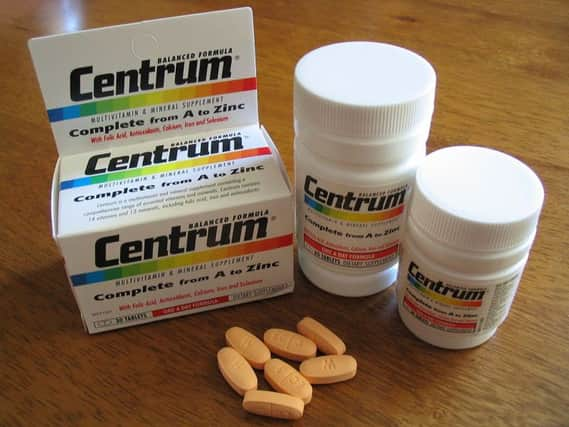Famous-name medicine 725% more expensive


The cost of branded over-the-counter painkillers and supplements at high street supermarkets and chemists can be up to 725 per cent more expensive than their no-frills versions.
The products, which in some cases contain exactly the same ingredients as their cheaper alternatives, claim to do the same job.
Advertisement
Hide AdAdvertisement
Hide AdThe price comparison study into branded and own label products, was commissioned by Voucherbox.co.uk, which warns consumers could be paying a huge price for packaging.
The research found that market-leading painkiller Nurofen costs on average £2.01 per pack of 16 tablets.
But generic alternatives at Asda and Tesco can be bought for as little as 30p - a difference of 567 per cent.
Both products contain exactly 200mg of ibuprofen and claim to offer the same pain relief.
Similar price hikes can be found with antihistamine medication, a must-have for anyone who suffers with hay fever.
Supermarket shoppers can get own label allergy relief from as little as £1, while branded alternatives such as Clarityn, which contains the same active ingredient, loratadine, are typically sold for £4.71 a pack.
Big brand multivitamin Centrum Advance can cost as much as £5.59 at some pharmacies, but Lloyds Pharmacy sells their own version A-Z multivitamin, with similar ingredients, for just £1.59 - three and a half times cheaper.
It’s a similar picture with paracetamol, flu remedies and aspirin, with all recognisable over-the-counter brands costing much more than their generic substitutes, with some as much as 725 per cent dearer.
Advertisement
Hide AdAdvertisement
Hide AdA pack of paracetamol can cost as little as 19p, and aspirin as little 28p at supermarkets, while their branded alternatives can set shoppers back £1.45 and £1.50 respectively.
Another market-leader, Lemsip, a product designed to help ease the symptoms of colds and flu, offers a combination of paracetamol and phenylephrine hydrochloride.
It costs as much as much £3.39 in high street pharmacies like Boots or Lloyds Pharmacy, but generic versions can be bought for as little as £1.80 in supermarkets.
According to Professor Jayne Lawrence, chief scientist at the Royal Pharmaceutical Society, branded products cost more because companies have to recover enormous costs associated with developing the drug.
She said: “Once the patent on the original version runs out, other companies are free to make their own version, and as they don’t bear the original development costs they can sell it much more cheaply.
“Branded and generic products are the same if the dose of the drug and the formulation are exactly the same.”
The value of the over-the-counter market in the UK is £2.5 billion with 942 million packs of medicine purchased in 2013.
Shoppers spend over £544m annually for pain relief medication like paracetamol, ibuprofen and aspirin, and £352 million on vitamins and food supplements.
Advertisement
Hide AdAdvertisement
Hide AdPeter Berry-Ottaway, technical Director for the Council for Responsible Nutrition said that while there may be subtle differences between some products, consumers have to be aware of the realities of marketing.
He said: “Generic products are as good quality as the best-selling brands.”